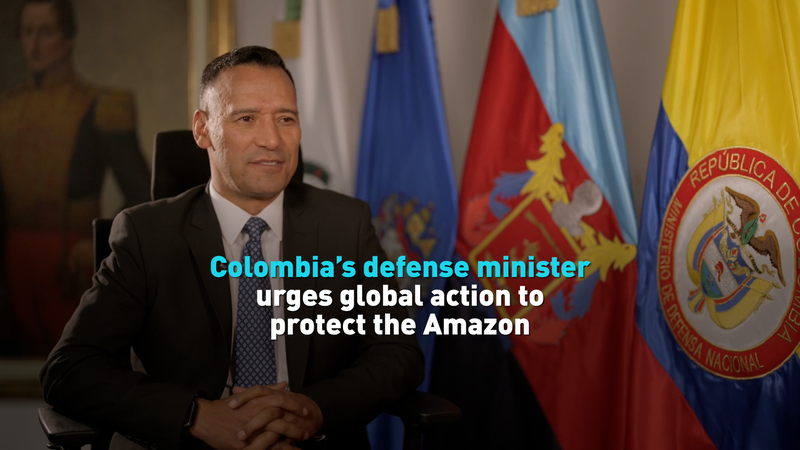This week in Belém, Brazil, world leaders have gathered for COP30, the UN Climate Change Conference. Amid rising global concern over climate disruption, Colombia’s Minister of Defense stepped into the spotlight with a stark warning: the Amazon rainforest cannot be protected by one nation alone.
“The Amazon is under siege,” said the minister during an interview with CGTN correspondent Michelle Begue. “Climate change, illegal logging, mining, and even the drug trade are eroding our natural defenses and fueling land degradation.”
Colombia, home to nearly 10 percent of Earth’s biodiversity, faces a dual challenge: safeguarding its rich ecosystems while combating illicit activities that threaten water sources and soil health. Beyond environmental stakes, the minister highlighted how these threats spill over into security, from armed groups controlling remote territories to traffickers funding violence.
A Call for Collective Action
Addressing the COP30 assembly, the defense minister urged nations across the globe to:
- Boost cross-border cooperation to dismantle illegal logging and mining networks.
- Invest in advanced monitoring technologies, like satellite imagery and drones, to patrol vast forested areas.
- Support sustainable development projects that empower local communities with green jobs.
- Ensure funding for conservation efforts matches the scale of the Amazon’s global impact.
Linking Security and Sustainability
By framing environmental protection as a security priority, Colombia is leading a fresh narrative at the climate talks. The minister argued that when forests are allowed to flourish, they act as natural buffers against extreme weather, stabilize local economies, and undercut the financial lifelines of illicit groups.
As COP30 progresses, Colombia’s call resonates with an urgent reminder: protecting the Amazon is a shared responsibility that transcends borders. For a region that impacts global climate patterns and biodiversity, collaborative strategies may be the best defense against forces that threaten our planet’s future.
Reference(s):
Colombia’s defense minister urges global action to protect the Amazon
cgtn.com



